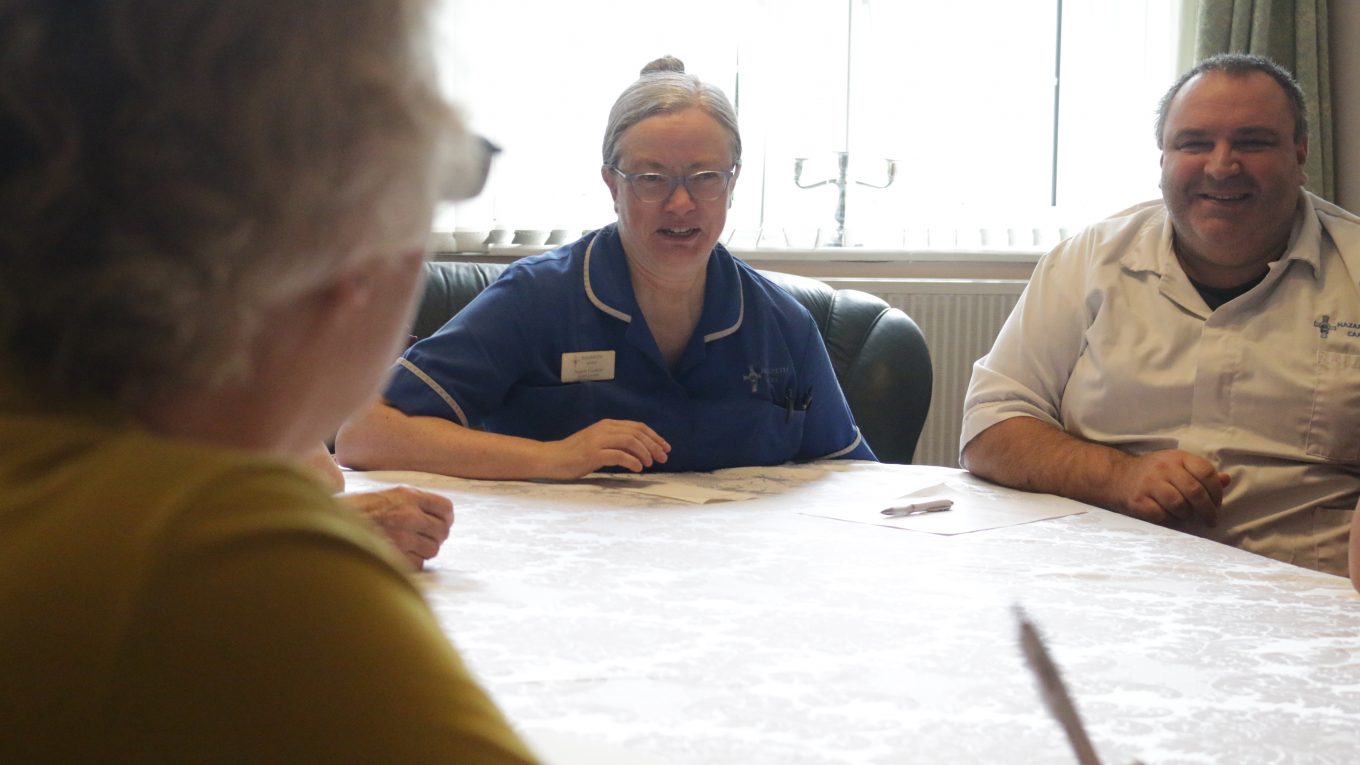An update on the Wales Dementia Friendly Hospital Charter, by Sarah Tilsed, Campaigns and Partnerships Manager, National Dementia Action Alliance
Update April 2022: The Dementia Friendly Hospital Charter has now been published
We’ve been working in partnership with Improvement Cymru and wider stakeholders to develop the Wales Dementia-Friendly Hospital Charter which will be published later this year. I’m pleased to provide an update on its progress.

The aim of the charter is to enable Health Boards to implement dementia-friendly practices.
Following our work delivering a charter with a hospital taskforce in England, we were approached by Improvement Cymru about supporting them in creating a charter in Wales.
Steering group
We set up a steering group comprised of clinicians, people affected by dementia and charities. We ran a set of workshops based on each of the SPACE principles, which were created by the Royal College of Nursing. SPACE stands for Staffing, Partnership, Assessments, Care and Environment. We added two extra principles – Governance and Volunteering, to ensure that all bases are covered.
The workshops invited all stakeholders from across different sectors to engage in coproducing the charter. The outputs from these workshops have been used as the basis for the charter self-assessment indicators for health boards to assess themselves against.
Taskforce in each Health Board region
Each region will have a taskforce and a readiness assessment to support them, that will help ensure all the correct governance standards are in place and make a commitment to signing up to the Charter. The charter sits within the Wales Dementia Pathway of Standards which offers a delivery framework supporting Health Board regions to sign up, get ready, deliver, and review the charter principles. The delivery framework will include engagement and experience surveys for people affected by dementia and practitioners.
Care Fit for VIPS
Improvement Cymru are working with the University of Worcester who developed Care Fit for VIPS, an assessment tool to ensure that person-centred care is in place for people with dementia. The VIPS Assessment tool helps staff and organisations rate progress and stands for:
V = Values people
I = Individual’s needs
P = Perspective of service user
S = Supportive social psychology.
As an example, a hospital VIPS indicators is “Staff know each person’s life story and use it positively in their daily interactions.” We are working with a web company to incorporate elements of the charter principles and self-assessment questions and in considering a person’s life story, the charter item will fit neatly under the VIPS indicator to offer a focus. We are developing a river diagram created from the self-assessment questions which is a visual representation. Thus there will be a Red-Amber-Green (RAG) rating, and an image for hospitals to support them with improvement and to create a growth plan accordingly.
Future of the charter
Going forward, each Health Board region in Wales will sign up to the Dementia-Friendly Hospital Charter, showing their commitment to people affected by dementia. Hospitals will highlight progress as part of the self-assessment and dementia standards workbook that will assist them in understanding where they still need improvement and showcase what they have achieved.
Some words from the Steering Group on what the Charter means for them
Nigel Hullah, person living with dementia – The Charter will improve the experience of people affected in hospital care settings. An experience that recognises their personhood, diversity and preferences are shaped by recognising the importance of dignity respect and kindness.
Ceri Higgins, Unpaid carer – A charter that takes our visions and realises them.
Dr Katie Featherstone, Medical Sociology, Cardiff University – The charter is important to drive quality and standards in our hospitals – to support and empower people living with dementia and the staff caring for them.
Suzanne Duval, Diverse Cymru – We are developing the Charter to ensure that structures, processes and practice are equitable and inclusive of all the protected characteristics. It will help ensure BAME communities receive an appropriate culturally competent service.
Lisa Fabb – Improvement Cymru – I think the charter will be a great tool to empower staff to provide great care for patients with dementia. It will be also focus people’s work and provide a plan to work to.
As you might imagine, COVID-19 has meant that we have had to adjust our pace in working robustly with all stakeholders but we plan to hold a launch for the Wales Dementia Friendly Hospital Charter later in 2021.
The work continues with each Welsh region engaged with driving forward the development of the key resources and a timeline for a launch of the charter is being planned for later in 2021. When the Charter is published it will be delivered to all the Health Boards. There will also be a launch event for those who supported this vital work, who included people with dementia, carers, practitioners, senior leaders and academics.

